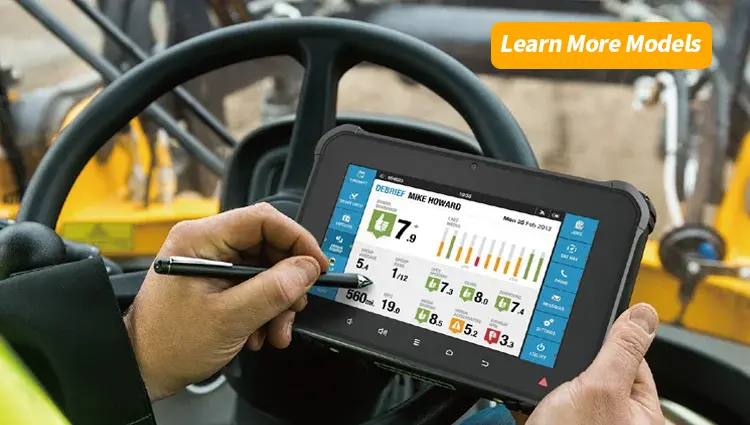Connectivity Challenges of Rugged Vehicle Tablets: Addressing Weak Signals in Remote Areas
In fleet management, rugged vehicle tablets are indispensable for real-time tracking, communication, and data synchronization. However, in remote areas where signal strength is weak, maintaining reliable connectivity poses a significant challenge. This post dives into the issues caused by poor signals in remote regions and their effects on fleet operations, while offering practical solutions for industry professionals.

photo from internet
Why Connectivity Matters
Connectivity is critical for:
- Real-time tracking: Ensures accurate vehicle monitoring and route optimization.
- Instant communication: Keeps drivers and managers aligned on schedules or emergencies.
- Data syncing: Maintains reliable records for reporting and compliance.
When signals falter, these core functions suffer, disrupting efficiency and increasing costs.
The Problem: Weak Signals in Remote Areas
Remote regions—think mountains, deserts, or rural landscapes—often face:
- Sparse network coverage: Fewer cell towers mean inconsistent signals.
- Geographical obstacles: Hills, forests, or vast open spaces block connectivity.
- Distance from infrastructure: Urban-grade networks rarely reach these areas.
For rugged vehicle tablets, this translates to dropped connections and unreliable performance.
The Impact on Fleet Operations
Weak signals can cause:
- Delays in data updates: Real-time tracking lags, leading to missed deadlines or rerouting issues.
- Communication gaps: Drivers can’t receive timely instructions or report problems.
- Data inaccuracies: Intermittent signals risk losing or corrupting operational data.
For example, a fleet operating in rural zones might see delivery times slip by 20% due to drivers missing route updates—a costly ripple effect.

photo from internet
Solutions to Stay Connected
Fleet managers can tackle these challenges with:
- Multi-network options: Tablets with 4G/5G, Wi-Fi, and Bluetooth can switch networks as needed.
- Satellite backup: Ideal for deep remote areas, ensuring uninterrupted coverage.
- Enhanced hardware: Tablets with external antenna ports boost signal strength.
- Offline capabilities: Store data locally and sync when connectivity returns.
Pro Tip: Opt for rugged tablets with dual-SIM support for network redundancy.

photo from internet
Final Thoughts
Weak signals in remote areas don’t have to derail fleet management. With the right technology—like rugged vehicle tablets built for tough conditions—and smart strategies, operations can stay on track.
What’s your approach to connectivity challenges in remote fleet operations? Drop your thoughts below or follow for more fleet tech insights!








